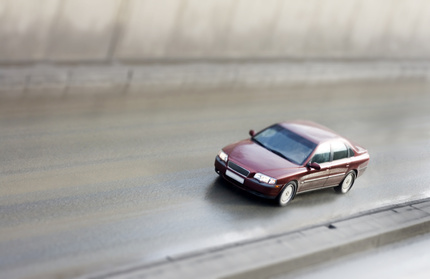
Like computers, cars require a central processing unit in order to operate. An automobile's power control module, or PCU, performs this task. The PCU has many functions in an automobile.
The power control module, commonly referred to as the powertrain control module, is an electronic control unit used in cars. An electronic control unit is a system that controls one or more electronics systems. The power control module combines the ECU unit and the TCU, or transmission control unit, a unit that controls automatic transmissions. The power control module essentially provides power and processes necessary information needed for the car to run properly.
A car engine generates power from fuel. This power is sent to the driveshaft through the transmission via the ECU and TCU units in the power control module. The driveshaft receives power via the power control module, which turns the axles, which enable the tires to rotate.
Sensors in the powertrain send electrical input and output in the form of signals to the power control module. The power control module interprets these signals and makes appropriate adjustments to engine speed and car component control to enable the car to perform and run smoothly.